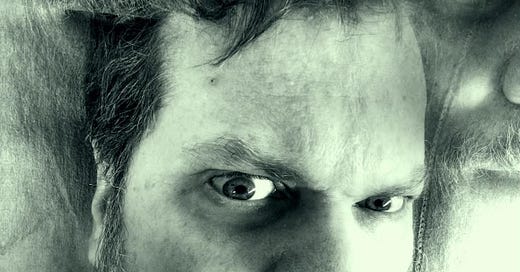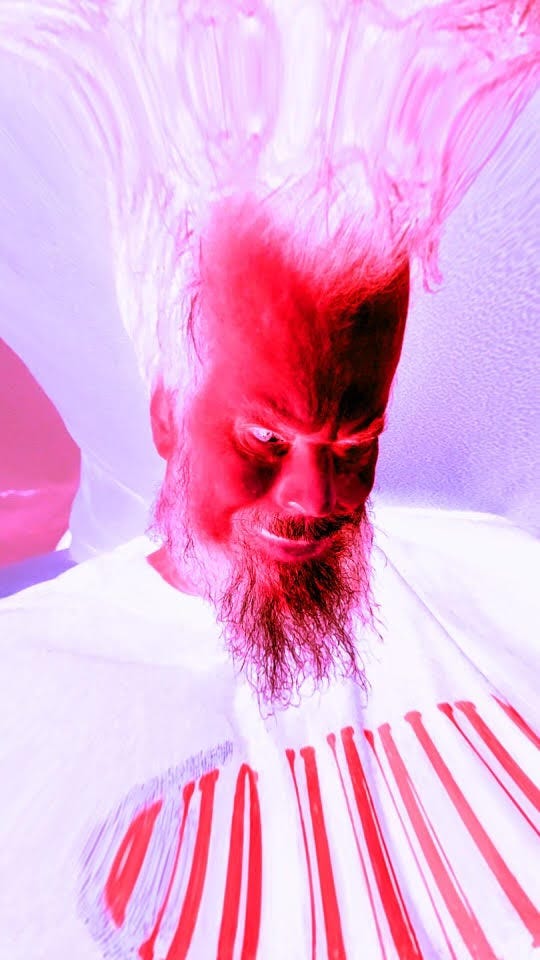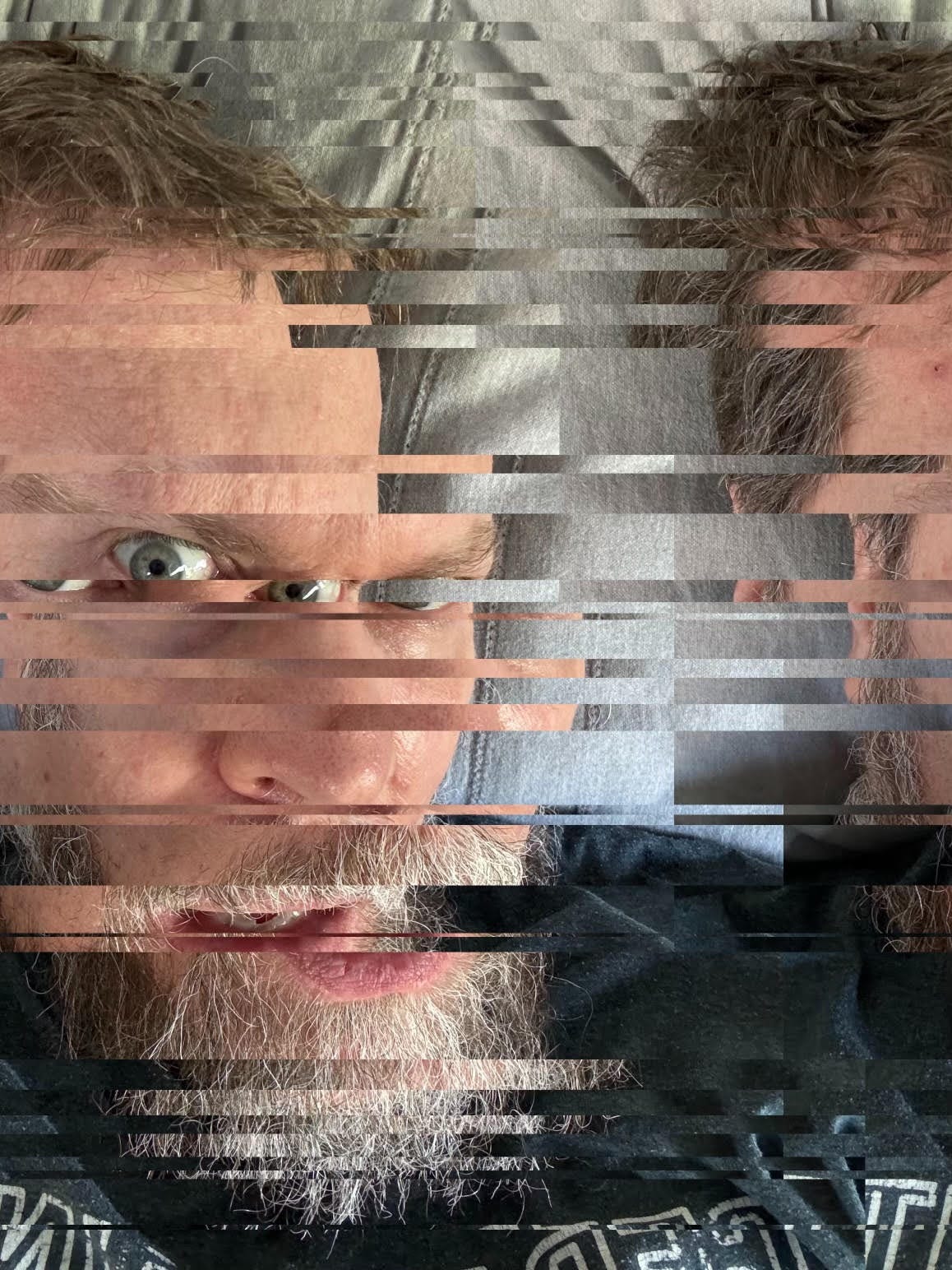The New Cue #385 June 3: John Grant
“I love a vocoder. I’d put it on my cornflakes in the morning if I could”
Good morning,
We hope your weekend was everything you hoped for and more. In today’s New Cue we speak to John Grant about his excellent new album, The Art Of The Lie. As you might have come to expect from an artist who doesn’t hold any punches when writing about his life, it’s a very frank and forthright chat which encompasses much more than just the making of the record. Much like John’s music, there’s plenty of self-deprecating humour in there, too. Plus, he gives us his tip for the best burger joint in Reykjavik (how many other music newsletters provide a service like that, huh?).
We’ll see you paying subscribers on Friday for another round of new musical recommendations, albums to blow your mind and more.
Enjoy the edition,
Ted, Niall and Chris
Start The Week With… John Grant
Formerly of alt-rock outfit The Czars, John Grant made a name for himself as solo artist with 2010’s acclaimed Queen Of Denmark: disarmingly frank songs detailing his battles with drink and drug addiction set to lush AOR piano ballads. He’s largely left the piano stool based singer-songwriter stuff behind since then in favour of more sonically adventurous electronic-based records. Next week, John releases his sixth solo album, The Art Of The Lie. The irresistible squelch and grind of lead singles It’s A Bitch and All That School For Nothing might have suggested a record of 80s-styled party bangers, but on more reflective tracks like Daddy, Mother And Son and Father, Grant digs deep into his troubled childhood in Michigan growing up gay in an ultra-conservative Christian household.
John spoke to Chris over Zoom from his home in Iceland last week about the record, his childhood, Donald Trump, the cost of shopping in Waitrose and where in Reykjavik does the best burgers. Ever the creative type, John went a bit maverick with his selfie, too (as you can see, above). He sent us loads, so we’ll drop a few more in during the course of the interview.
Hello John, how are you?
I’m good, thank you.
Where are you? Are you at home?
Yes. In Reykjavík.
What’s the weather like?
[Angles laptop towards the window] Quite overcast, but I’ll bet it’s not as cold there as it is here. I just left [the UK] and it got rainy and chilly towards the end of the week, but it was still pretty warm. It was pretty nasty in the bowels of the tube.
It must be over 10 years now since you moved to Reykjavík.
12 years.
Does it feel like 12 years?
No, it doesn’t actually. It feels like 40!
You’re an Icelandic citizen now. How does it feel looking to America after all that time? Do you feel some distance?
[Very long pause] I don’t really know. It’s hard to say. The prisons that I have inside my head are from there, I may as well have never left there. I mean, there’s proof that I did leave there, I wouldn’t be able to speak Icelandic if I hadn’t. Well, that’s not true, I could have learned.
With some of the things that have happened there in recent years, particularly with Trump, does it make it more heartbreaking seeing it from afar?
I suppose I feel anger more than anything else. Because of my particular trajectory, I never felt particularly welcomed there. I always felt like an outsider. That was something that was instilled in me. As long as you remain this thing that you are, you’ll never be welcome here. Of course, there were little pockets where you could go, a bit like in Russia these days, and you could be homosexual, but you just have to make sure that you don’t do anything that would indicate that to anyone. You can’t step out of line or talk about it. It got particularly bad for me during Covid when all that was happening. I really was losing it a little bit because it felt like all those people who told me: You’re not welcome here, people like you, we’re gonna get you... It was like they never went away, they were just biding their time.
And they were back in charge…
It reminded me of being around people who tolerated you, but they always had a little bit of sick in the back of their throat. That’s what really started to become clear to me. A lot of people don’t get that, they’re like, ‘What are you talking about? Just go find your family, you choose your family in the world!’ Well yeah, I have done that. I’ve got great friends all over the world, wonderful friends, but there is this thing that’s still there. It’s where a lot of this music is coming from. Now I’m able to express it clearer than I’ve been able to before.
Did watching that unfold take you back to being a teenager?
Yeah. I remember being in school and guys would know that they would get in trouble for treating me like they wanted to treat me if they were around authority figures, so they would act a different way. They’d be smiling and laughing but looking at me like: I’m gonna get you, you fucking faggot. You piece of fucking shit. I’m gonna get you when these people aren’t around... That’s what it felt like when Trump was elected, that’s what it unearthed. For me, it was that feeling back then of: We’re never going to stop until we’ve gotten rid of people like you.
It must have been incredibly difficult having those feelings brought back up.
There’s something in me that doesn’t work. Something was damaged during that time, the whole religious upbringing. And I still struggle with it. And I hate it. I feel ashamed and don’t want to deal with it in my work. I think, ‘How come you can’t just let it go and go to a salsa class with everyone else who just seems to be partying out there and living their best life?’
You’ve never exactly shied away from difficult personal things in your music, but this album really does seem to dig into your childhood and your relationship with your parents much deeper than you have before.
I’m still trying to figure it out. Because I want to get rid of it. Everybody keeps telling you, ‘You need to be nice to that child inside of you that’s wounded.’ I’m so sick of hearing that shit. But it’s true. That makes me even angrier. It’s like, ‘You’ve got to cut that kid some slack...’ I haven’t been able to do that yet. You know, I just look at that child and say, ‘Well, if you wouldn’t have been genetically defective…’
Really?
It was like a perfect storm of formative experiences for me. I remember one day my sister and a group of her friends came up to me in the front yard in the 70s and they were like, ‘Why are all your friends so much better looking than you?’ And then the psychology behind the Christian right, being told that this is a psychological and genetic defect. All these things coming together that made me feel that, yeah, this is true, this is science. But it was all mixed up with spiritual stuff, too. And you trusted these people. People listen to my story and they say, ‘Oh shut the fuck up. Come on, you know that’s not true. You’re an adult. You know those fucking fairy tales in that dumb book are not true!’
People like to come across as if they’ve got it all figured out but there are millions of people who have this story, so it’s not about me feeling misunderstood. People are like, ‘Just get the fuck over it, everything’s fine.’ I look out there and I see it’s not fine. These people that I see, the influencers on Instagram, I’m not buying what they’re selling. In the gay community it seems like it’s just a big fucking party. Well then, why is crystal meth addiction such an epidemic? Fuck off with all this, ‘You should get over it.’ Nobody gets over it. Put on some Lycra and get your Richard Simmons on, life is nothing but joy, look at the trees and stuff. Well, I do see all that beauty. I really do experience it, it’s incredible. I don’t know, I feel like I’m digressing. But I’m trying to make a point.
No, it’s all linked into the themes on the album.
It is. I get asked all the time, ‘What makes you think people want to hear about all this shit that you’re talking about?’ But I think with my humour and what I build into the songs and the sounds that I use that I am an optimist. I keep trying to figure it out, I keep showing up.
One of the things I love about the record is the textures. The 80s synths sounds, vocoders, there’s little nods to things like Grandmaster Flash in there. You’re addressing what you had to grow up with, but at the same time there’s a lot of joy and fun in there.
Yeah, and there was all this joy, but then in the background this gigantic prison was always been built inside my head as these joyous things were happening. Listening to Grandmaster Flash’s The Message was a big moment for me. The song The Child Catcher on the record is a love letter to [80s duo] Dead Can Dance. All That School For Nothing, It’s A Bitch and Meek AF, those are love letters to the hip hop and electro bands of the of the early 80s like Whodini and Cameo and all of that. But you don’t want it to be nostalgic in the sense that you can’t make it past those bands. Although I feel like you could do a lot worse. Because nobody’s come around and done anything better than them, I have to say.
You still can’t beat a bit of vocoder…
Vocoders are one of the greatest sounds in the whole world to me. They sound like a robot in the future longing for the past. They sound so melancholy and have a longing quality to them. I love a vocoder. I’d put it on my cornflakes in the morning if I could.
Has working on this album changed how you feel about that time growing up and your relationship with your parents?
I think I changed how I felt about my relationships a long time ago. I started the process of getting sober a long time ago and facing all this stuff. It was necessary for me to go through a sobriety process. A long time ago, I realised that my father did the best that he could, and that he that he loves me and loved me, and that my mother, because of what she came from, she was unable to ever accept me the way that I was. But I loved her and she loved me even though she said that she was she was ashamed of what I was. And so was my dad. As an adult you can look back and see that these were just people with their own struggles.
What’s next for you? Last year you and Richard Hawley did a tour performing Patsy Cline songs, there’s your Creep Show side-project. Where’s your head at creatively at the moment?
It’s in a million different places right now. You know, like, a country album with Teddy Thompson a-la The Everly Brothers. A minimal electro vocoder album with German accents and huge fat beats. An ambient noise record, because I have to express the inability to form words to describe the ridiculousness that’s going on, you know. It depends what comes out of me first.
What else have you got on for the rest of the day?
I have a friend coming over in about an hour who’s from the States. She’s leaving tomorrow so I’m going to hang out with her for a while and maybe I’ll go out to get my favourite hamburger in Reykjavík as well.
Where does the best hamburger in Reykjavík?
It’s called Yuzu Burger. It’s a really good fucking burger. I don’t allow myself to do it very often because it’s so fucking expensive to go out here.
The cost of everything was one of my abiding memories of visiting Reykjavík.
Yeah, but that’s pretty much anywhere now. I mean, London is absolutely absurd. I can’t believe it. I went to Waitrose to get a few bits and it came to like fifty pounds! What?!?!!
Tesco’s is almost as bad these days. Thanks for talking to us, John.
Not at all, I love you guys!
CC






